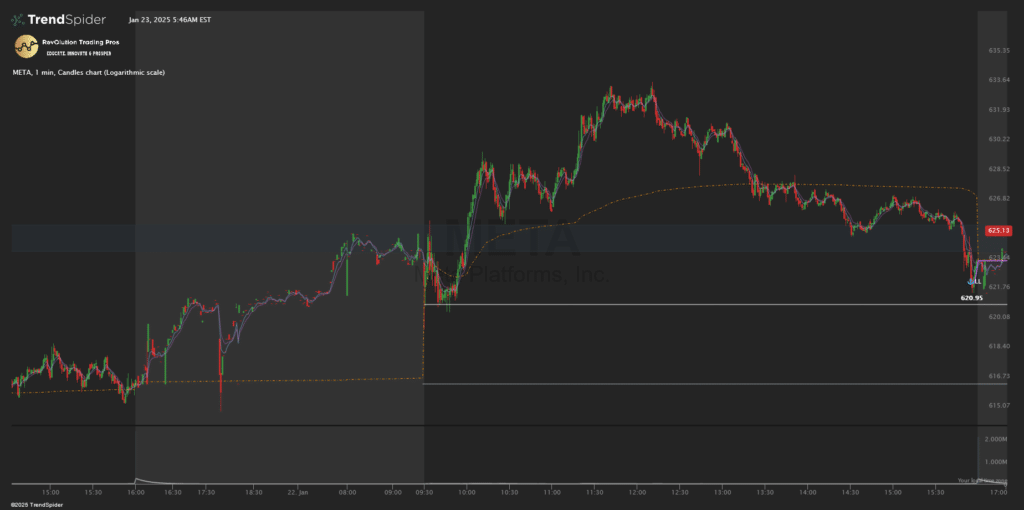ETF vs. Mutual Funds: Which is Better for You?
ETF vs. Mutual Funds
Which is Better for You?
Understanding the Differences and Making the Right Investment Choice

Introduction To ETF vs. Mutual Funds
When it comes to building a diversified investment portfolio, Exchange-Traded Funds (ETFs) and Mutual Funds are two of the most popular options available to investors. Both provide a way to invest in a diversified basket of assets, but they do so in different ways, each with its own set of advantages and disadvantages. Understanding the differences between ETFs and mutual funds is crucial in deciding which one is better suited to your investment strategy. This guide will break down the key differences, benefits, and drawbacks of ETFs and mutual funds, helping you make an informed choice based on your financial goals.
What Are ETFs and Mutual Funds?
Understanding ETFs
Exchange-Traded Funds (ETFs) are investment funds that trade on stock exchanges, much like individual stocks. ETFs hold a collection of assets such as stocks, bonds, or commodities, and their prices fluctuate throughout the trading day as they are bought and sold. ETFs are typically passively managed, meaning they aim to replicate the performance of a specific index, such as the S&P 500 or the Nasdaq 100. However, there are also actively managed ETFs that seek to outperform the market through strategic asset selection.
Understanding Mutual Funds
Mutual funds are investment vehicles that pool money from multiple investors to purchase a diversified portfolio of assets. These funds can be actively managed, where a fund manager makes decisions about how to allocate assets to outperform the market, or passively managed, where the fund simply tracks an index. Unlike ETFs, mutual funds are traded only once per day after the market closes, and their prices are based on the net asset value (NAV) of the underlying assets. This structure means that investors cannot buy or sell mutual fund shares at intraday prices, as they can with ETFs.
Key Differences Between ETFs and Mutual Funds
Trading and Pricing
- ETFs: One of the primary differences between ETFs and mutual funds is how they are traded. ETFs trade on exchanges throughout the day, just like stocks. This allows investors to buy and sell ETF shares at market prices that fluctuate during the trading day. This intraday trading provides flexibility and the ability to react quickly to market changes, which can be an advantage for more active traders.
- Mutual Funds: In contrast, mutual funds are only priced and traded once a day, after the market closes. The price at which investors can buy or sell shares is the fund’s net asset value (NAV) calculated at the end of the trading day. This means that mutual fund investors cannot take advantage of intraday price movements, making mutual funds less suitable for short-term trading strategies.
Management Style
- ETFs: ETFs are generally passively managed, meaning they aim to replicate the performance of a specific index or sector. The passive management style of most ETFs contributes to their lower costs compared to mutual funds. However, the rise of actively managed ETFs has provided investors with more options, offering professional management with the liquidity and flexibility of ETFs.
- Mutual Funds: Mutual funds can be either actively or passively managed. Actively managed mutual funds are run by professional fund managers who attempt to outperform the market by selecting individual securities. This active management often results in higher fees but can potentially lead to higher returns. Passively managed mutual funds, on the other hand, aim to mirror the performance of an index and typically have lower fees, similar to ETFs.
Fees and Expenses
- ETFs: ETFs typically have lower expense ratios compared to mutual funds, particularly because many ETFs are passively managed. Lower expense ratios mean that more of your investment returns go into your pocket rather than towards management fees. However, when trading ETFs, investors may incur brokerage fees, which can add up, especially if the investor trades frequently.
- Mutual Funds: Mutual funds, especially actively managed ones, often come with higher expense ratios. These fees cover the cost of professional management and can include sales loads, which are fees charged when you buy or sell shares in the fund. Over time, these higher fees can significantly reduce net returns, making mutual funds more expensive in the long run.
Tax Efficiency
- ETFs: One of the significant advantages of ETFs is their tax efficiency. Due to their structure, ETFs typically generate fewer capital gains distributions compared to mutual funds. This is because ETFs use a unique process called “in-kind redemption,” which allows them to swap securities without selling them and triggering capital gains taxes. As a result, ETF investors generally have a lower tax burden, making ETFs a tax-efficient investment vehicle.
- Mutual Funds: Mutual funds can be less tax-efficient due to their structure. When a mutual fund manager buys or sells securities within the fund, any resulting capital gains are distributed to shareholders, who must pay taxes on these gains. This can happen even if the investor did not sell any shares of the mutual fund. For investors in high tax brackets, the tax inefficiency of mutual funds can be a significant drawback.
Advantages of ETFs
Flexibility and Liquidity
One of the primary advantages of ETFs is their flexibility. ETFs can be bought and sold throughout the trading day, allowing investors to take advantage of intraday price movements, implement stop-loss orders, and even trade on margin. This liquidity makes ETFs an attractive option for both long-term investors and short-term traders who need the ability to enter and exit positions quickly.
Lower Costs
ETFs generally have lower expense ratios compared to mutual funds, particularly because many ETFs are passively managed. This cost advantage can lead to better long-term returns, especially for investors who prioritize keeping expenses low. Additionally, because ETFs do not typically charge sales loads, they can be a more cost-effective option for investors looking to maximize their returns.
Transparency
ETFs are required to disclose their holdings daily, providing investors with greater transparency about what they own. This daily disclosure allows investors to know exactly what they are buying and to monitor their investments closely. For investors who value transparency and want to be fully informed about their portfolio, ETFs offer a clear advantage over mutual funds, which typically disclose their holdings quarterly.
Advantages of Mutual Funds
Professional Management
For investors seeking active management, mutual funds offer access to professional fund managers who select securities with the goal of outperforming the market. This active management can be beneficial for investors who prefer a hands-off approach and trust professional managers to make investment decisions on their behalf. In particular, mutual funds may be appealing to those who lack the time or expertise to manage their own investments.
Automatic Reinvestment
Mutual funds often offer automatic reinvestment of dividends and capital gains, allowing investors to compound their returns over time without needing to take any action. This feature can be particularly advantageous for long-term investors who want to maximize their growth potential by consistently reinvesting their earnings.
Dollar-Cost Averaging
Many mutual funds allow investors to make regular, automatic contributions, which can be a convenient way to implement a dollar-cost averaging strategy. Dollar-cost averaging involves investing a fixed amount of money at regular intervals, regardless of market conditions. This approach reduces the impact of market volatility by spreading out purchases over time, potentially lowering the average cost per share and enhancing long-term returns.
Disadvantages of ETFs and Mutual Funds
ETFs
- Brokerage Fees: While ETFs generally have lower expense ratios, frequent trading of ETFs can lead to higher brokerage fees, especially for investors who make many small trades. These fees can accumulate over time, reducing the overall cost advantage of ETFs.
- Bid-Ask Spread: The difference between the buying price (bid) and the selling price (ask) of an ETF, known as the bid-ask spread, can be significant, particularly for less liquid ETFs. A wide bid-ask spread can increase transaction costs and reduce net returns, especially for investors who trade frequently.
Mutual Funds
- Higher Fees: Actively managed mutual funds often come with higher expense ratios and sales loads, which can significantly reduce net returns over time. These higher costs can be a disadvantage, particularly for long-term investors who are sensitive to fees.
- Less Flexibility: Since mutual funds are only traded at the end of the day, investors cannot take advantage of intraday price movements. This lack of flexibility makes mutual funds less suitable for investors who want to react quickly to market changes or implement more complex trading strategies.
Which is Better for You?
Consider Your Investment Goals
When choosing between ETFs and mutual funds, it’s essential to consider your investment goals. If you’re a long-term investor who prefers a hands-off approach and values professional management, mutual funds, particularly actively managed ones, might be more suitable. On the other hand, if you’re cost-conscious, prefer flexibility, and are comfortable managing your investments, ETFs may be the better choice. Additionally, if tax efficiency is a priority, ETFs generally have an edge.
Assess Your Risk Tolerance
Your risk tolerance also plays a significant role in choosing between ETFs and mutual funds. If you’re looking for a low-cost way to diversify your portfolio and are comfortable with market fluctuations, ETFs can offer a good balance of risk and return. If you prefer the guidance of a professional manager and are willing to pay higher fees for potentially higher returns, mutual funds might be more appropriate.
Tax Considerations
Tax efficiency is another important factor to consider. ETFs generally have a tax advantage due to their structure, which minimizes capital gains distributions. However, in tax-advantaged accounts like IRAs, this difference may be less significant. In such cases, your decision should be based more on other factors like cost, investment strategy, and management style.
Conclusion
Both ETFs and mutual funds offer valuable benefits depending on your investment goals, risk tolerance, and preferences. By understanding the key differences and advantages of each, you can make an informed decision that aligns with your financial objectives. Whether you choose ETFs, mutual funds, or a combination of both, the most important thing is to stay informed and remain disciplined in your investment approach.
Check out our article on:
- Introduction to Options Trading
- Mastering Butterfly Spreads
- The Power of Diagonal Spreads
- The Power of Iron Condors
- The Power of Vertical Credit Spreads
Elevate Your Investment Strategy
Ready to make the most of your investment portfolio? Whether you prefer ETFs or mutual funds, join our exclusive community for insights, educational resources, and expert analysis. Sign up today to take your investing to the next level!
Below are the links:
To your success,

Billy Ribeiro is a renowned name in the world of financial trading, particularly for his exceptional skills in options day trading and swing trading. His unique ability to interpret price action has catapulted him to global fame, earning him the recognition of being one of the finest price action readers worldwide. His deep comprehension of the nuances of the market, coupled with his unparalleled trading acumen, are widely regarded as second to none.
Connect with us:





